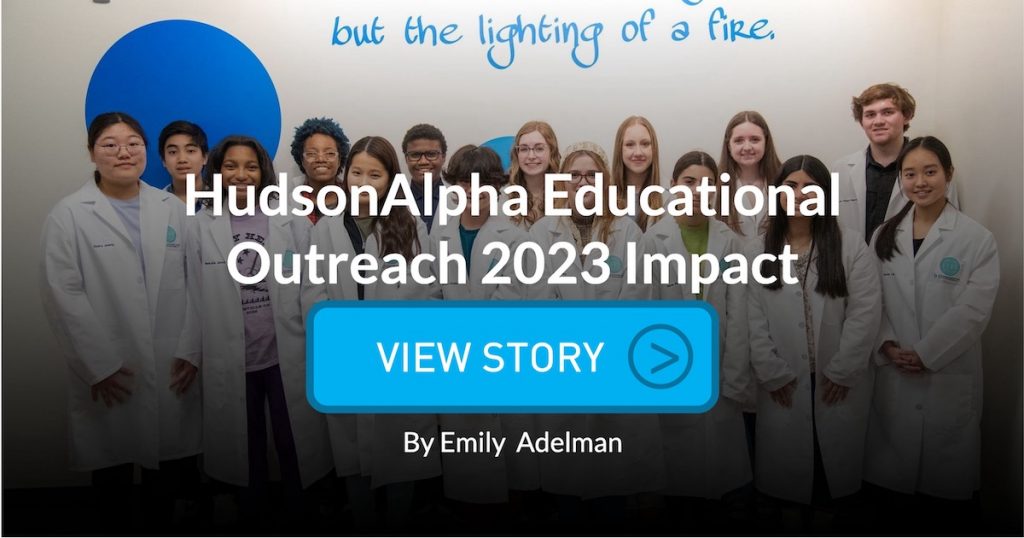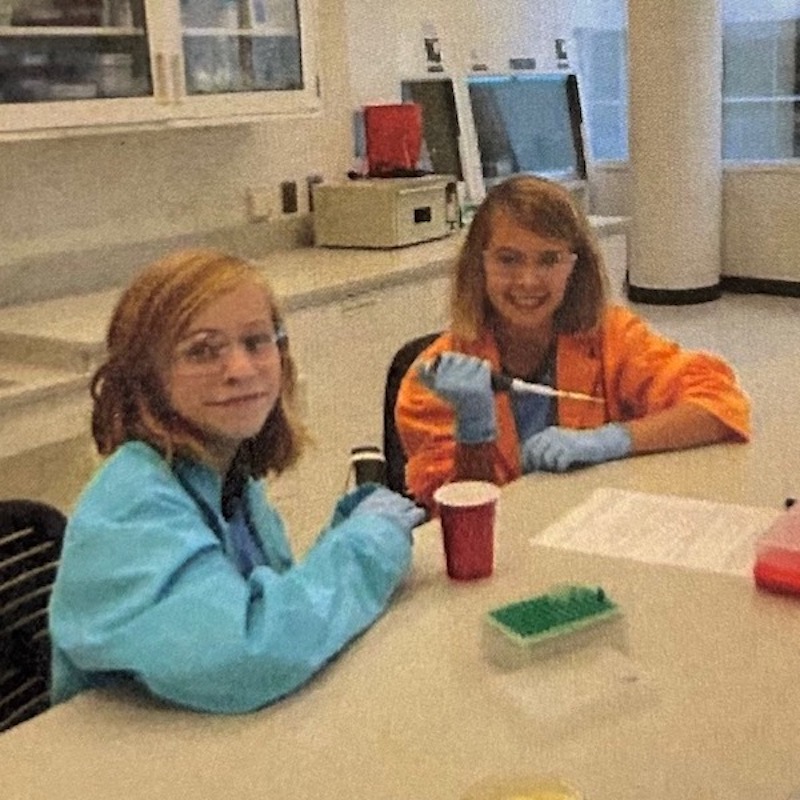Huntsville, Ala. — Alabama high school students will become plant detectives… hoping to discover the hidden treasures of Alabama’s rich plant biodiversity. The Bicentennial Barcoding project, which will genetically catalog Alabama’s native plant diversity, is part of the state’s upcoming bicentennial celebration.
The project is a collaboration between HudsonAlpha Institute for Biotechnology and the Alabama Bicentennial , which supports, creates and executes events that commemorate the state’s history.
“We are delighted to have an opportunity to collaborate with HudsonAlpha,” said Jay Lamar, executive director of the Alabama Bicentennial Commission. “Not only are we honored to work with the Institute, but its bicentennial project opens up an avenue for participation that would not have existed otherwise. This means that more students and teachers will be a part of the bicentennial.”
According to barcodelife.org, barcoding uses a very short genetic sequence from a standard part of the genome the way a supermarket scanner distinguishes products using the black stripes of the Universal Product Code (UPC). Two items may look very similar to the untrained eye, but in both cases the barcodes are distinct.
“We will provide training and resources that will give high school students and teachers the opportunity to determine DNA barcodes from the state’s population of native plants,” Jennifer Carden, leader of the project and a member of the HudsonAlpha Educational Outreach team.
The plant will be photographed in its natural surroundings and linked to GPS-based location data. The collected samples will then be sent to HudsonAlpha for DNA extraction and preparation of samples for sequencing. Using a freely available DNA analysis program, students will examine the resulting DNA sequences and look for a match to existing barcodes. If a sequence is not currently a part of the barcode of life database, the students will have opportunity to submit the sample for validation and register a new entry in the database.
“I can’t think of a better way for HudsonAlpha to commemorate Alabama’s bicentennial year,” said Neil Lamb, PhD, vice president for Educational Outreach at HudsonAlpha. “The Barcoding project not only involves technologies and projects outlined in the Alabama Course of Study, but also engages students with their community and teaches the importance of preserving Alabama’s unique ecosystems.”
One of the key components of this project is the involvement of teachers and community partners across the state including Susette Rohde, a science teacher at Meek High School in Winston County, and camp and conference center Camp McDowell.
“McDowell Educational Programs is thrilled to be a partner in this exciting venture. Science is a verb and we seek to find real world ways to fully engage young people in the excitement of learning through inquiry and research,” said Maggie Johnston, director of educational programming for Camp McDowell. “What better way to make that happen than to bring students into the natural world and help them make the connections that they too are a part of that world? We feel that this HudsonAlpha project will open the doors for many local children to get hooked on science and want to continue learning.
“I’m so thankful for my students to have the opportunity to participate in this project,” said Susette Rohde from Meek High School. “I’m looking forward to learning together and am honored to collaborate with HudsonAlpha.”
The Bicentennial Barcoding project is made possible by institutional support from HudsonAlpha and the Lyndhurst Foundation.
“Lyndhurst is elated to participate in Alabama’s bicentennial celebration through its investment in the DNA Barcoding project in partnership with HudsonAlpha,” said Bruz Clark, president and treasurer of the Lyndhurst Foundation. “Alabama’s natural heritage is remarkable but relatively unknown outside of the conservation community. To enable students to play a role in telling this story through serious science in the field and laboratory is indeed a privilege for us at the foundation.”
Carden and Lamb joined Gov. Robert Bentley and Sen. Arthur Orr in Montgomery today where they officially announced Alabama’s bicentennial commemoration.
To learn more about the Alabama bicentennial, visit http://www.alabama200.org/.
About HudsonAlpha: HudsonAlpha Institute for Biotechnology is a nonprofit institute dedicated to innovating in the field of genomic technology and sciences across a spectrum of biological challenges. Opened in 2008, its mission is four-fold: sparking scientific discoveries that can impact human health and well-being; bringing genomic medicine into clinical care; fostering life sciences entrepreneurship and business growth; and encouraging the creation of a genomics-literate workforce and society. The HudsonAlpha biotechnology campus consists of 152 acres nestled within Cummings Research Park, the nation’s second largest research park. Designed to be a hothouse of biotech economic development, HudsonAlpha’s state-of-the-art facilities co-locate nonprofit scientific researchers with entrepreneurs and educators. The relationships formed on the HudsonAlpha campus encourage collaborations that produce advances in medicine and agriculture. Under the leadership of Dr. Richard M. Myers, a key collaborator on the Human Genome Project, HudsonAlpha has become a national and international leader in genetics and genomics research and biotech education, and includes more than 30 diverse biotech companies on campus. To learn more about HudsonAlpha, visit: http://hudsonalpha.org/.
HudsonAlpha Media Contact:
Margetta Thomas
mthomas@hudsonalpha.org
256-327-0425


